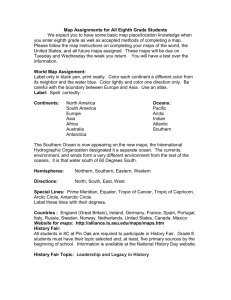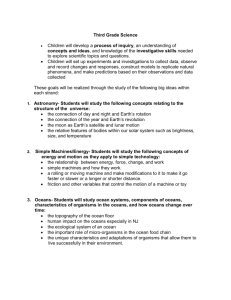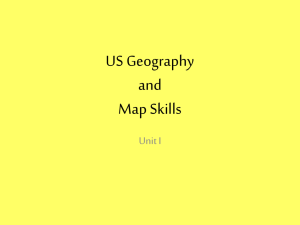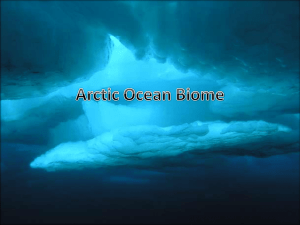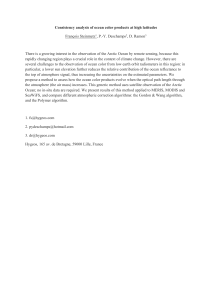Speaking of Science Climate Change in Canada’s North and the Arctic Ocean
advertisement
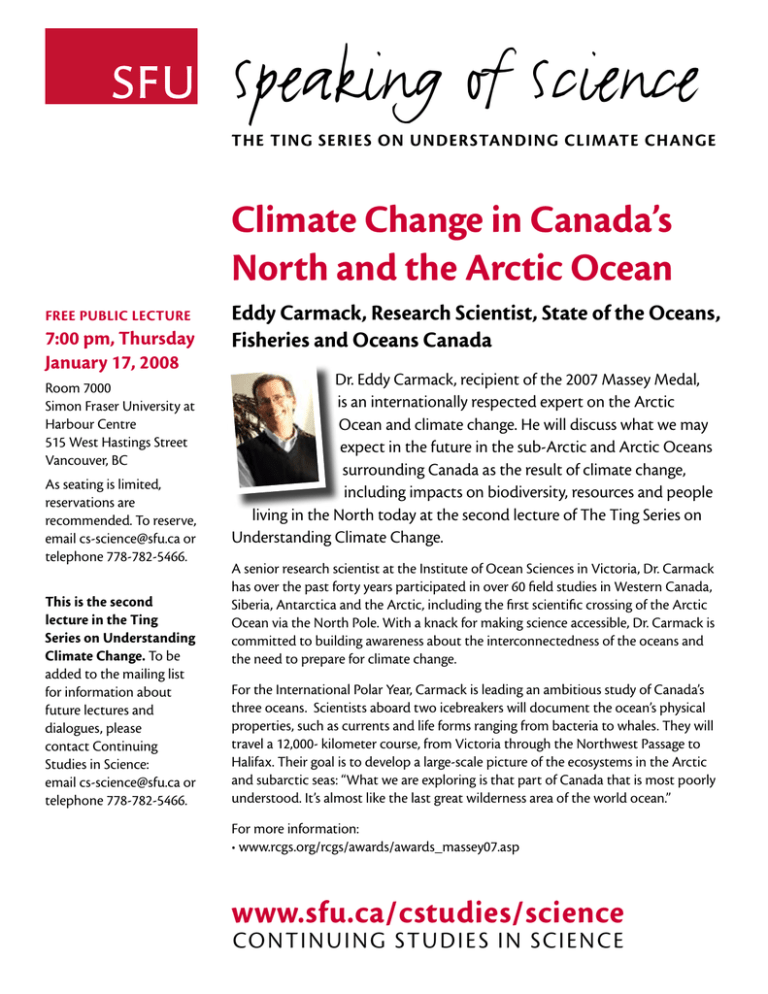
Speaking of Science The Ting Series on Understanding Climate Change Climate Change in Canada’s North and the Arctic Ocean Free Public Lecture 7:00 pm, Thursday January 17, 2008 Room 7000 Simon Fraser University at Harbour Centre 515 West Hastings Street Vancouver, BC As seating is limited, reservations are recommended. To reserve, email cs-science@sfu.ca or telephone 778-782-5466. This is the second lecture in the Ting Series on Understanding Climate Change. To be added to the mailing list for information about future lectures and dialogues, please contact Continuing Studies in Science: email cs-science@sfu.ca or telephone 778-782-5466. Eddy Carmack, Research Scientist, State of the Oceans, Fisheries and Oceans Canada Dr. Eddy Carmack, recipient of the 2007 Massey Medal, is an internationally respected expert on the Arctic Ocean and climate change. He will discuss what we may expect in the future in the sub-Arctic and Arctic Oceans surrounding Canada as the result of climate change, including impacts on biodiversity, resources and people living in the North today at the second lecture of The Ting Series on Understanding Climate Change. A senior research scientist at the Institute of Ocean Sciences in Victoria, Dr. Carmack has over the past forty years participated in over 60 field studies in Western Canada, Siberia, Antarctica and the Arctic, including the first scientific crossing of the Arctic Ocean via the North Pole. With a knack for making science accessible, Dr. Carmack is committed to building awareness about the interconnectedness of the oceans and the need to prepare for climate change. For the International Polar Year, Carmack is leading an ambitious study of Canada’s three oceans. Scientists aboard two icebreakers will document the ocean’s physical properties, such as currents and life forms ranging from bacteria to whales. They will travel a 12,000- kilometer course, from Victoria through the Northwest Passage to Halifax. Their goal is to develop a large-scale picture of the ecosystems in the Arctic and subarctic seas: “What we are exploring is that part of Canada that is most poorly understood. It’s almost like the last great wilderness area of the world ocean.” For more information: • www.rcgs.org/rcgs/awards/awards_massey07.asp www.sfu.ca/cstudies/science Cont i nu i n g S t u d i e s i n S ci en ce
